Fishing Safety & First Aid
Fishing is a fantastic way to enjoy and connect with nature while grabbing something fresh and delicious for dinner while you're at it! However, just like anything else, this sport has its risks and hazards you need to be aware of and prepare for to keep yourself and others safe!
Basic Fishing Safety
While (usually) not as destructive as hunting, you still need to do several things to keep yourself and those around you safe while you're casting. If you follow these fishing safety tips, your risk of disaster will drastically decrease, and the safer you are, the happier you will be!
Know What's Behind You

This one may seem obvious, but people get hurt all the time by walking behind unsuspecting fishermen. Resulting injuries can vary from getting a fishhook lodged in the victim's skin, or they might just get cracked over the head. While people should definitely be careful when walking behind anglers, it's also your responsibility to ensure it's safe for you to cast.
Know the Local Fish
If you expect to catch a guppy and a fifteen-pound bass starts yanking on your line, you could lose your fishing pole or fall and hurt yourself. Beyond this, you need to be aware of which species require a special license to fish and which fish may be protected. This is critical if you want to keep your fishing license and avoid any fines or possible jail time. You can't fish from prison!
Another good reason to know the fish in the area is that some have teeth, spines, sharp fins, and can even be venomous. Any one of these can ruin your day if you aren’t careful! Once you know what fish are living in the water, make sure you take the time to learn how to hold and handle these fish.
Be Mindful of the Wildlife
Along the same lines as knowing the local fish, you need to know what wildlife is in the area and how you should respond to their presence. For example, if a bear is frolicking around your preferred watering hole, consider finding a different one until they leave. No fish is worth getting mauled by a bear. If you can help it, you want to avoid putting yourself in danger. You also need to look out for things like venomous snakes, poison ivy, snapping turtles, and other potentially dangerous things.
Always Wear a Life Jacket
Even the best of swimmers can drown. Don't be cocky and wear a life jacket every time you fish! Not only will this help you stay afloat, but it will help people notice you if an emergency occurs.
Don't Be That Guy

Generally, people go outdoors to relax and unwind. This is their time to escape the stress and complications of everyday life. So, imagine how irritating it'd be to step on a discarded fishhook and ruin your favorite pair of shoes. Or worse, you could step on an old rusty hook while wading! Not only is abandoned fishing gear terrible for humans, but it can also be devastating and life-threatening to the local wildlife. Do your part and clean up after yourself!
Common Fishing Injuries
So, the fishing safety tips didn't keep you from getting hurt this time. It happens! If people could completely avoid injury, neither of us would be here! But since we aren't magically invulnerable, listed below are common fishing injuries and how to treat them.
Hook Injuries
As hooks are rather crucial to the basic fishing experience, you'll be using them a lot. And since hooks can easily cause puncture wounds or get embedded in the skin, it's bound to happen to you or someone you know at some point. If a hook gets caught in the skin, don't try to remove it yourself. This is especially true if the hook is barbed or embedded deep within the skin. Instead, cut the line as close to the hook as possible and seek professional medical attention. For minor puncture wounds, clean the area with soap and water and apply an antiseptic ointment and a bandage.
Cuts and Lacerations
Fishing equipment, such as knives or fish hooks, can cause all types of cuts and lacerations. If a cut is deep and bleeding profusely, apply pressure to the wound with a clean cloth or gauze and seek medical attention. For minor cuts, clean the wound with soap and water and apply an antiseptic ointment followed by a bandage.
Sunburns

Spending long hours on the water can result in sunburn (yes, even if it's cloudy). Apply sunscreen with at least SPF 30 before heading out and reapply every two hours. For extra protection and a subtle vampire charm, wear a wide-brimmed hat, sunglasses, and protective clothing to shield your skin from the sun's harmful UV rays. It's never too early to protect yourself from skin cancer!
Heat Exhaustion
Fishing in hot weather can result in heat exhaustion, which can cause symptoms such as headaches, dizziness, and nausea. If you believe you're getting heat exhaustion, move to a cooler area, loosen tight clothing, and drink plenty of fluids to rehydrate. If the symptoms persist or worsen, seek medical attention.
Hypothermia
Just like fishing in hot weather can screw you over, fishing in cold weather can mess you up, too (we just can't win)! Excessive exposure to the cold may cause hypothermia. Symptoms include shivering, confusion, and difficulty speaking. Move the person to a warm area, remove any wet clothing, and cover with blankets. Hot, non-caffeinated, non-alcoholic beverages will also help if you have any. As usual, seek medical attention if symptoms persist.
Musculoskeletal Injuries
While fishing is excellent for the mind (and dinner), it can be damaging to your body if you're not careful. Fishing involves repetitive movements that can lead to muscle strains and sprains. If you experience pain or swelling, rest the affected area, apply ice, and take over-the-counter pain relievers. If you think you might be overdoing it, don't power through it! It's better to take a break and not risk it than to be sore and in pain for who knows how long.
Eye Injuries
These are the injuries that make me question if I really want to go fishing. Lures and hooks can accidentally hit the eye, causing pain and potentially damaging the area. If you are unlucky enough to get an eye injury, cover the affected eye with a clean cloth and seek medical attention immediately. Even if the damage doesn't initially seem bad, your eyes are fragile! Don't take that risk!
Fishing First Aid Gear
Now that you know how to stay safe and care for/prevent various fishing injuries, you need to know what first aid supplies you need to take fishing. It's not very helpful if you know how to treat various wounds but don't have the necessary gear to do so! We would also recommend you keeping all your supplies in a waterproof kit to protect them.
Life-Saving Supplies
- Chest seals
- Emergency pressure bandage
- Hemostatic gauze
- Space blanket
- Tourniquet
Bare-Bone Basics

- Alcohol prep pads
- Antibiotic ointment
- Antimicrobial wipes
- Bandages
- Blister tape
- Burn gel
- Butterfly bandages
- CPR shield (again, pathogens are a thing!)
- First aid guide
- Ibuprofen
- Non-adherent pad
- Saline wash
- Splint
- Triangle bandage
- Tweezers
And with that, you're all set to head out and pull in your prized catch! Now that you know how to keep yourself safe and treat various angling injuries, you can head out on the water with some peace of mind. Don't have the time to assemble your own first aid kit? No worries! My Medic's waterproof fishing first aid kit is exactly what you need for all your water-based adventures! Don't be caught unprepared and take a first aid kit with you!
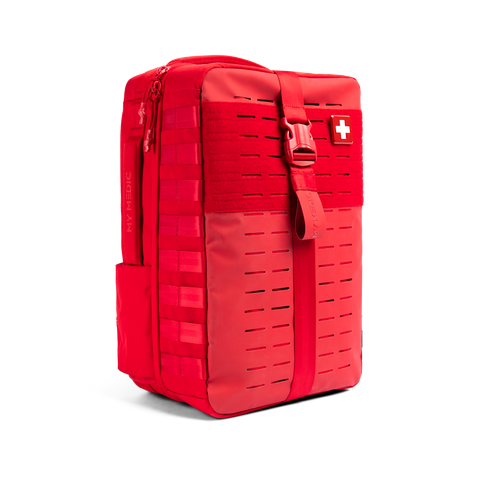 NEW ARRIVALS
NEW ARRIVALS
 BEST SELLERS
BEST SELLERS
 SUPERSKIN™
SUPERSKIN™
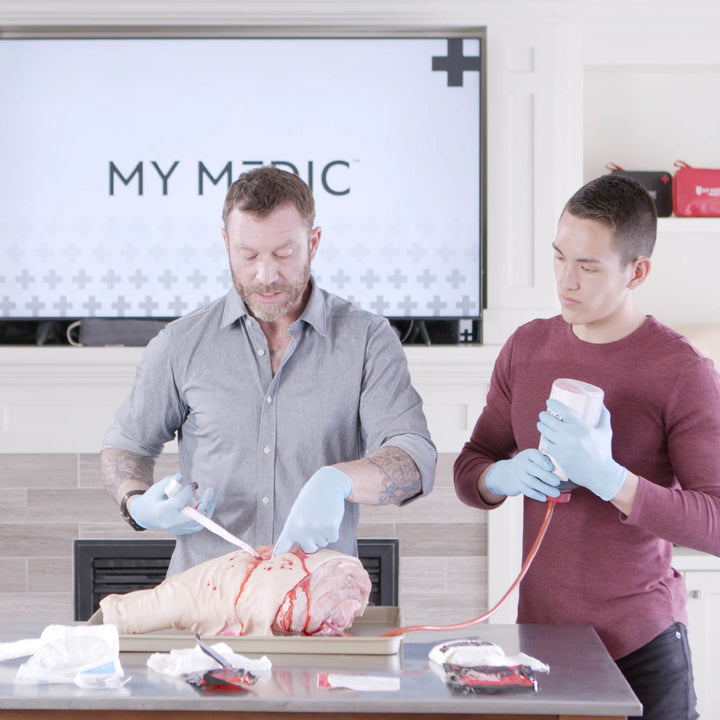 COURSES
COURSES
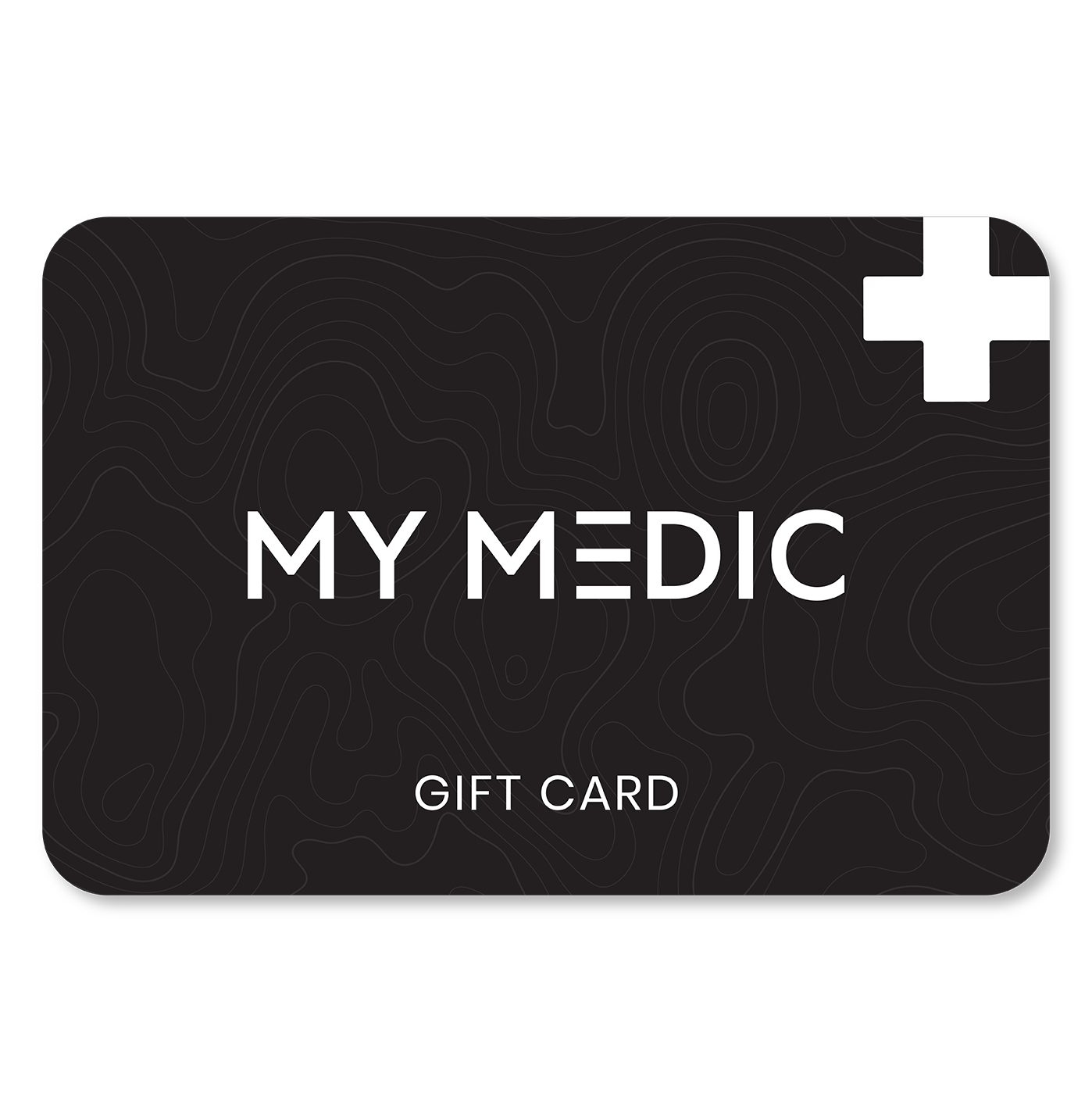 GIFT CARDS
GIFT CARDS
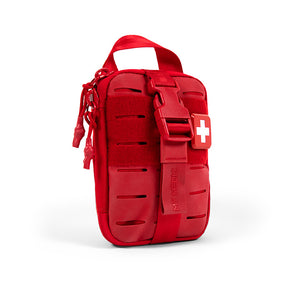 The MyFAK Collection
The MyFAK Collection
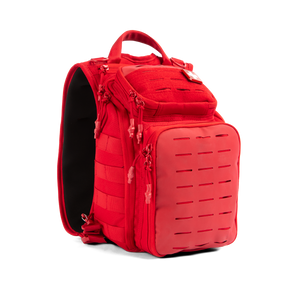 Specialty
Specialty
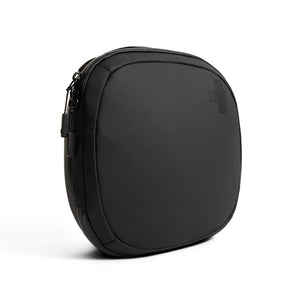 The Ready Collection
The Ready Collection
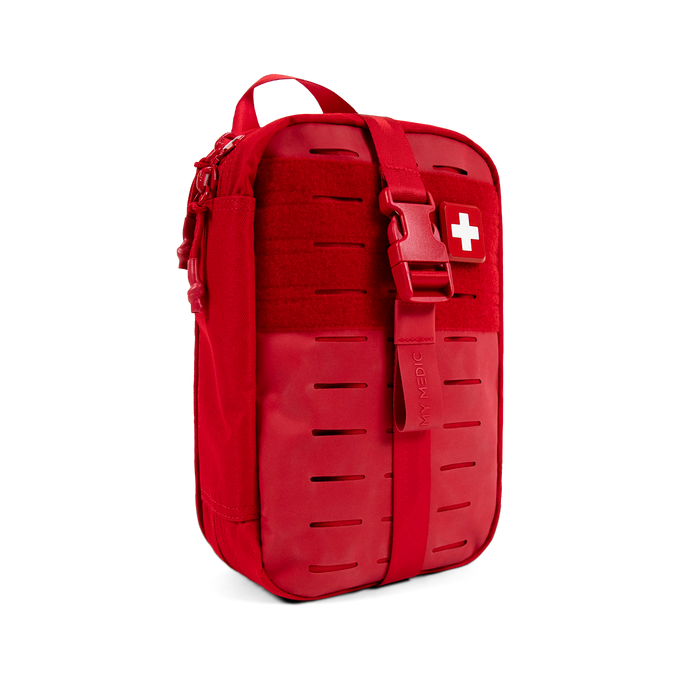
 BLEED
BLEED
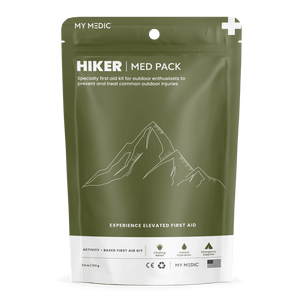 OUTDOOR
OUTDOOR
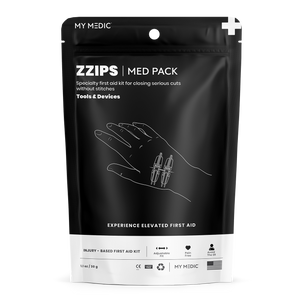 TOOLS & DEVICES
TOOLS & DEVICES
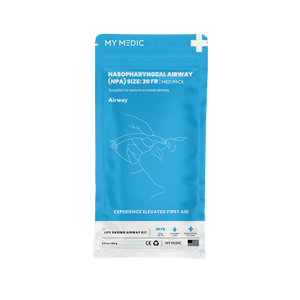 AIRWAY
AIRWAY
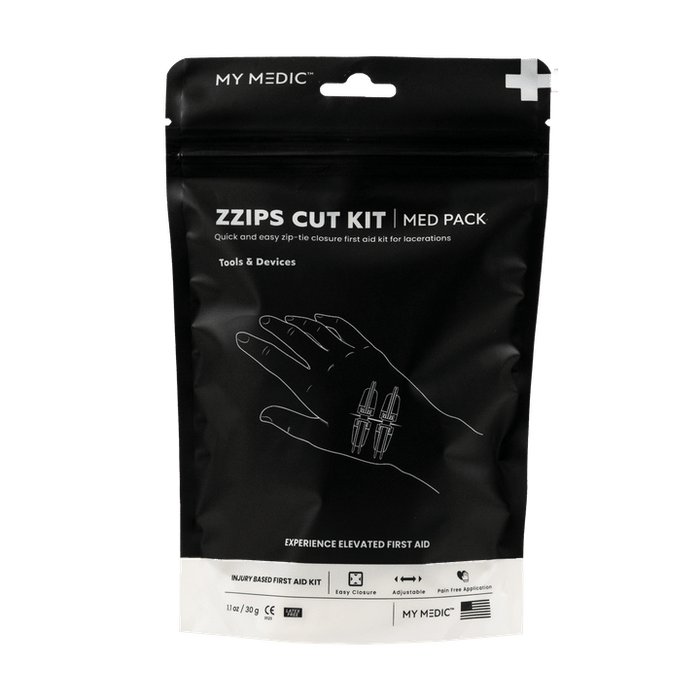
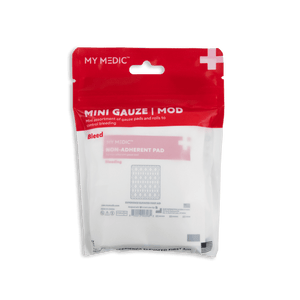 BLEED
BLEED
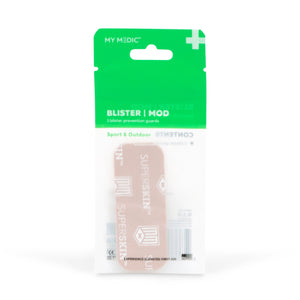 OUTDOOR
OUTDOOR
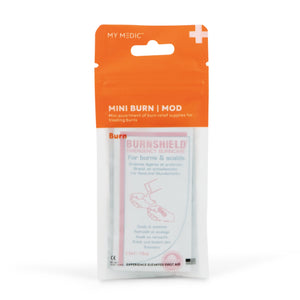 BURN
BURN
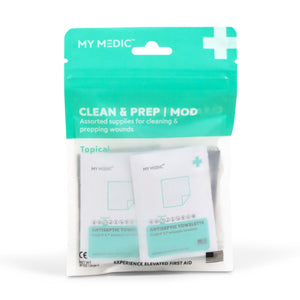 TOPICAL
TOPICAL
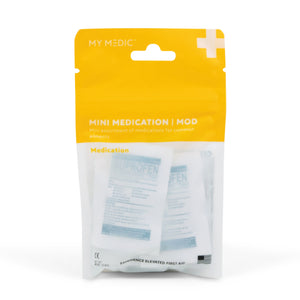 MEDICATION
MEDICATION
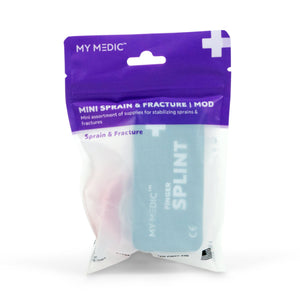 SPRAIN & FRACTURE
SPRAIN & FRACTURE
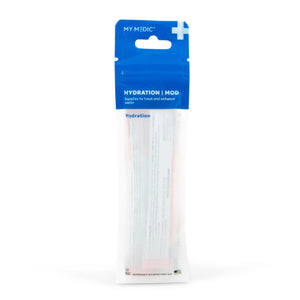 HYDRATION
HYDRATION
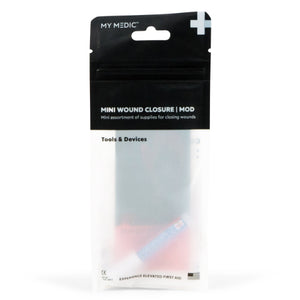 TOOLS & DEVICES
TOOLS & DEVICES
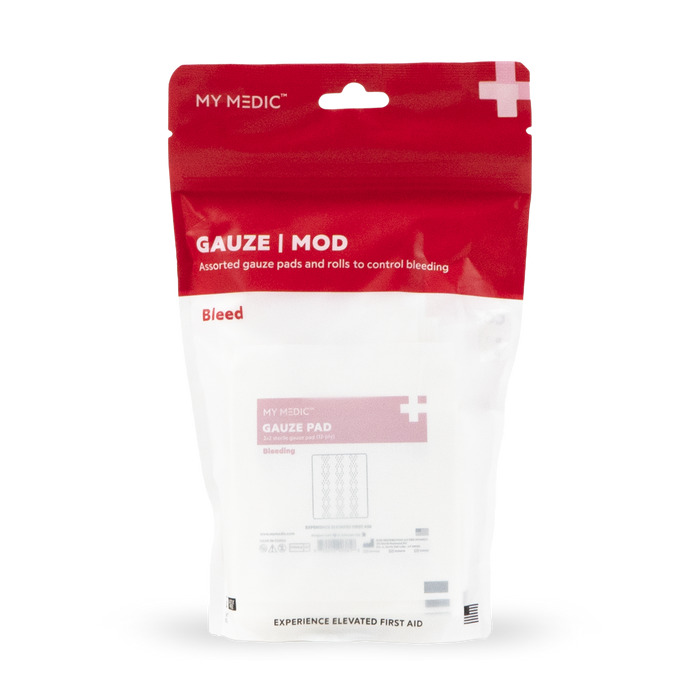
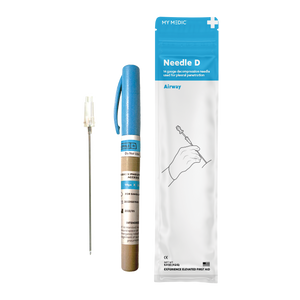 Supply Categories
Supply Categories
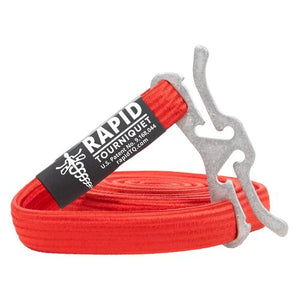 Top Sellers
Top Sellers
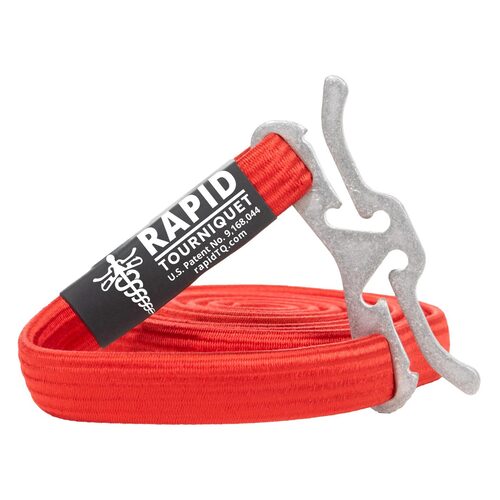






Thank you for the quick refresher.
Being an avid fisherman and an EMT, I have been “hooked” plenty of times myself and treated quite a few others. Also, everyone forgets about sunburn and hydration besides beer! Enjoy your Summer! Thanks again! JC
———
My Medic replied:
Hey JC! We’re glad this was helpful for you, and we hope you have a fantastic and safe summer as well!
Leave a comment